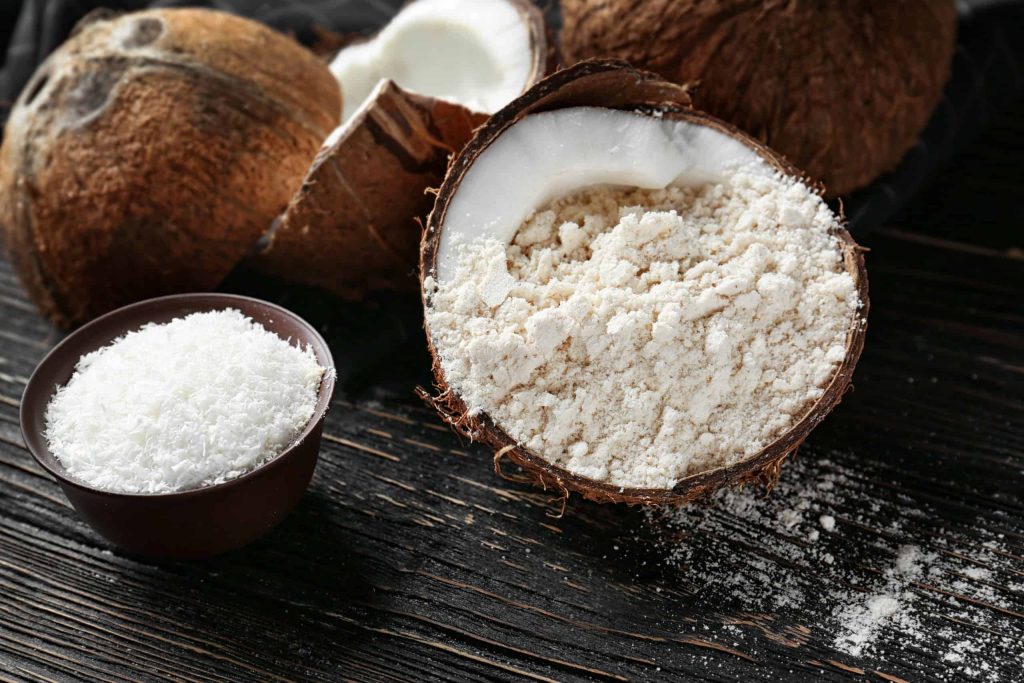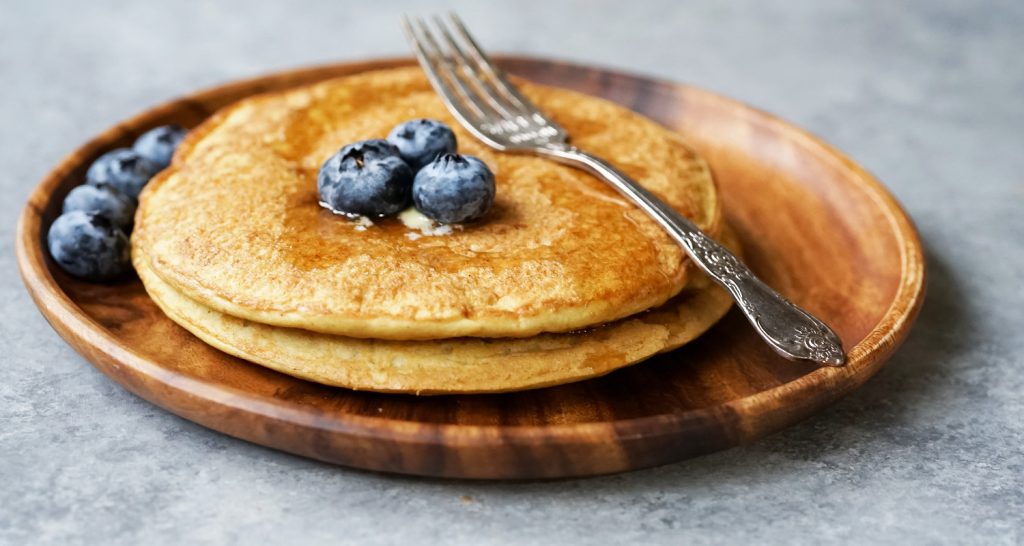Coconut flour is an increasingly popular ingredient used in a variety of recipes. It’s a nutritious and delicious alternative to traditional flour, but one question that often arises is how long it lasts before spoiling. Read on to learn how long the shelf life of coconut flour is and what you can do to make it last longer.

Table of Contents
How Long Does Coconut Flour Last?
Coconut flour has a pretty long shelf life, up to two years when stored properly in an airtight container in a cool, dry place like a pantry or cupboard.
Of course, you should always check the expiration date on your coconut flour before using it, just in case. That said, if yours doesn’t have an expiration date or if it’s been open for some time, you can use these tips to determine if your coconut flour has gone bad:
– Check for mold. If there is any visible mold growing on the outside of your bag or container of coconut flour, discard it right away.
– Check for bugs. If there are tiny black bugs inside your bag of coconut flour (a sign that it’s gone bad), discard it immediately, and be sure to clean out your pantry thoroughly afterward.
– Smell it! If your coconut flour gives off a sour smell or tastes bitter when you take a small pinch and taste it, throw it away and get some fresh coconut flour instead.
Extending the Shelf Life of Coconut Flour
If you want to make sure your coconut flour stays good for as long as possible, here are some tips:
– Store in an airtight container or resealable bag with all the air squeezed out – this will help keep moisture out and prevent mold from forming.
– Refrigerate or freeze unused portions – this will help extend the life of your coconut flour by up to 12 months from when opened (just be sure to transfer it back into an airtight container once thawed).
– Use within 6 months after opening for best results – after 6 months, even properly stored coconut flours may start deteriorating in quality so try not to wait too long before using them!
FAQs
Can you fry with coconut flour?
Yes, you can fry with coconut flour.
Coconut flour is a versatile ingredient that offers a unique texture and flavor to fried dishes. It has a light, slightly sweet flavor and absorbs liquid easily, making it ideal for frying.
When using coconut flour for frying, it’s important to use the right type of oil – one that’s high in saturated fat like coconut oil or palm oil.
These oils have a higher smoke point, allowing them to withstand the high temperatures needed for frying without burning. When using coconut flour for frying, you’ll also want to use a light hand – too much can make your dishes greasy and heavy.
To achieve the best results when frying with coconut flour, be sure to adjust the amount of oil and flour used depending on the size and type of dish you’re making. With a little practice, you’ll be able to make delicious fried dishes with coconut flour in no time!
When using coconut flour for frying, it’s important to keep in mind the temperature needed – high heat is necessary to crisp the outside of the food without burning it.
Coconut flour has a low burn rate, so you’ll want to keep an eye on your dish as it cooks. It’s also important to use enough oil and to make sure the oil is hot enough before adding the food – if it’s too cold, the food won’t crisp up properly.
Finally, don’t forget to season your dish! Coconut flour has a mild flavor and can benefit from extra seasoning for added depth of flavor. With some practice, you’ll soon be making delicious fried dishes with coconut flour
Read more: Does Almond Flour Taste Like Almonds? A Guide to Almond Flour
Can you make gravy with coconut flour?
Coconut flour is a popular alternative to wheat-based flours, being made from dried coconut pulp that has been ground into a fine powder. It can be used as an ingredient in breads and other baked goods, but can you make gravy with it?
While it may seem like an unusual choice of ingredient for gravy, the answer is yes!
Coconut flour can be used to make a thick and flavorful gravy that pairs perfectly with roasted meats or vegetables.

Conclusion
With proper storage techniques and regular inspection for signs of spoilage, you can rest assured that your bag of coconut flour will stay fresh and ready for baking adventures even after several months have passed since opening! Keep these tips in mind next time you buy some so you can get the most out of every purchase!
References:








